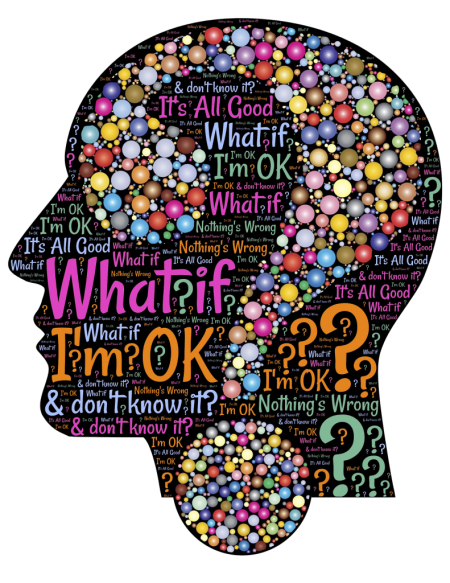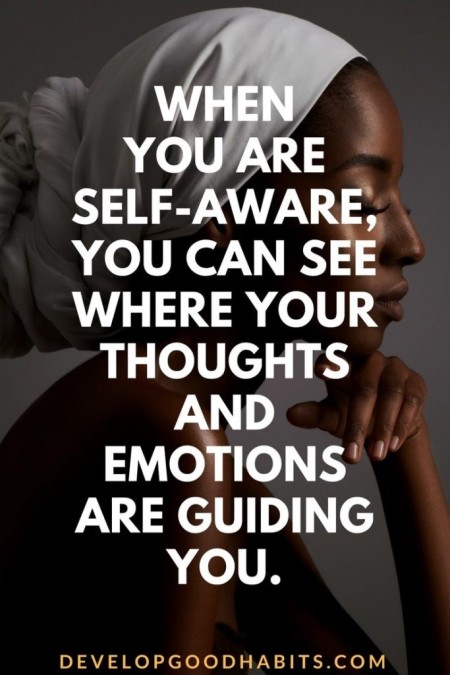Self Awareness
In Cumbria we learned that anger and passion trumped self awareness during many difficult conversations. A priority for us as we work together has been to support the development of self awareness and a reflection on how spoken language and body language can cause hurt. More care in our conversations has made them more effective.
Here are some points to think about...

- Their values are clear to them.
- They are very clear about how they are perceived by people around them.
- They consider the needs and feelings of others and how their words and actions may affect others.
- They are humble; they don’t pretend to know everything.
- They are willing to listen to other people’s views.
Self-awareness can give you a deeper understanding of your own attitudes, opinions and knowledge. It can also give you an understanding of the impact your behaviour has on other people.
You may realise that while this issue is very important to you, it won’t be viewed in the same way by everyone else involved.

- Know your strengths and weaknesses. Analyse the decisions you make and think about how you manage your emotions.
- Know your personality type.
- Focus on others. Think carefully about what you say and how it will affect the other person. When you manage your own words and actions, it shows that you care enough to consider the impact you may have on other people and alert you to any negative emotions or consequences.
- Reflect on the impact you may have and ask for feedback from others. This will help you to see your behaviour from their point of view.
- By being self-aware, you get to know what does and doesn’t work for you and you can learn to manage your impact on other people.
- Self-awareness helps inspire trust and credibility.
(Source: People Management July 2017 – Dr Tasha Eurich)


‘It’s not enough to feel emotion – you have to show it to be a successful communicator’ – Hariet Henehan
Voice and language are critical in inspiring others and gaining trust – two essential leadership skills.
To inspire, leaders need to use emotion. The use of emotion is key in influencing others, and voice and body language are powerful ways to communicate emotion.
Leaders should ensure their voice and their appearance is congruent with what they are saying – if it is an enthusiastic message, it should sound enthusiastic and look enthusiastic.
 |
 |
|
|
 |
 |
Look at the body orientation ‘signals’ below.
& then think about the interpretations of these 'signals'.
| Arms folded |  |
Defensive or unsure |
| Facing towards you |  |
Interested and involved |
| Facing away from you |  |
Bored or displeased |
| Sitting forward or straight in the chair |  |
Interested and involved |
| Sitting back |  |
Defensive or uninterested |
| Slumped in the chair |  |
Uninterested |
| Looking directly at you |  |
Openness and willingness to listen |
| Eyes moving around the room |  |
Nervousness or lack of interest |
| Tilted head |  |
Interested and involved |
| Looking down |  |
Unsure or hesitant |
| Fiddling with pens / jewellery / phones |  |
Lack of interest or nervousness |
| Asleep |  |
Probably not a great sign |
- Story telling is a way to make things relevant and interesting to an audience and can be easy to remember.
- When telling a story, be clear about your audience and what may be interesting to them.
- Don’t just offer facts; put them into a story that will make them more relevant to the audience.
- The finished story should be easy to remember and pass on.Stories embed facts and create mental maps in our brains.
- Story telling is a way to make things relevant and interesting to an audience and can be easy to remember.
- When telling a story, be clear about your audience and what may be interesting to them.
- Don’t just offer facts; put them into a story that will make them more relevant to the audience.
- The finished story should be easy to remember and pass on.

Using Empathy Effectively
Put aside your viewpoint, and try to see things from the other person's point of view
When you do this, you may see that they are not being stubborn or unreasonable but probably reacting to the situation with the knowledge they have.
Acknowledge the other person's point of view
Once you ‘see’ why others believe what they do, acknowledge it. Acknowledgement does not always mean agreement. You can accept that people have different opinions from your own and they may have good reason to hold on to those opinions.
Think about your attitude
Do you have an open-mind or are you concerned about getting your own way, winning the argument or being right? Or, is your aim to find a solution, build relationships, and accept others? Without an open-mind or the right attitude, you probably won’t have enough room for empathy.
Listen to the entire message that the other person is trying to communicate
- Listen with your ears – what is being said, and what tone is being used?
- Listen with your eyes – what is the person doing with his or her body while speaking
- Listen with your instincts – do you sense that the person is not communicating something important
- Listen with your heart – what do you think the other person feels?
Ask what the other person would do
When in doubt, ask the other person to explain his or her position. This is probably the simplest and most direct way to understand the other person.

- Pay attention, physically and mentally, to what’s happening
- Listen carefully and note the key words and phrases that people use
- Respond encouragingly to the central message
- Be flexible – prepare to change direction as the other person’s thoughts and feelings change
- Look for cues that you are on target
Source: www.mindtools.com

Behaviours include:
- The ability to recognise and understand your own mood, emotions and drives as well as their effect on others.
- The ability to control or redirect disruptive impulses, moods and to think before you act.
- The passion to work for reasons beyond money or status and the drive to pursue goals with energy and persistence.
- The ability to understand the emotional makeup of other people
Here's a challenge!
Do you agree with this statement or not?
What has changed in recent years that has had an impact on how we have conversations?
We are becoming more self-absorbed as a culture, and remarkably less self-aware.



